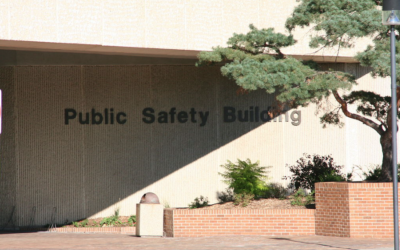
After the bill was signed, the U.S. Department of Treasury released a Compliance and Reporting Guidance document that outlines provisions related to the funding. Public officials have until December 31, 2024, to use the money, and many already have launched large projects. In an initial look at how public officials say they will spend the ARPA funding, there are some common initiatives.
Ohio
The city of Cleveland, with its allocation of $511 million, ranks in the top 10 cities receiving the ARPA funding. This allocation is larger than those of other cities such as Phoenix and San Antonio because funding allocations are not based on population. Other factors such as the number of residents in poverty, the number of overcrowded or pre-1940 housing units located in a region, and the population lag since 1960 all were considered. Cleveland’s mayor has announced a $20 million broadband expansion project and an estimated $27.6 million affordable housing project. Other projects include $15 million for demolition work, $26 million for public safety initiatives and equipment purchases, and $108 million for critical needs such as cybersecurity, virtual resident services, and maintenance.
Arizona
The city of Phoenix announced it will use its funding to target three areas: community investment, city operations, and contingency costs. An allocation of $23 million will be spent for capital needs such as the rehabilitation of the 27th Avenue Recycling Facility, green energy efforts, flood control, and stormwater projects. Another $9 million will be used to provide health care services and address homelessness issues throughout Phoenix.
Florida
The county of Hillsborough plans to use its $285.9 million allocation for transportation infrastructure. Approximately $35 million is under consideration for roadway repaving initiatives. The county also plans future appropriations of ARPA funding which could be as much as $10 million for bridge repair. Another $2 million is earmarked for traffic signals, and $3 million for other transportation safety improvements. The county’s 10-year transportation plan also includes $900 million to widen roads and make streets safer, $473 million to improve 178 intersections, $273 million for 100 miles of trails, and $238 million for 53 miles of sidewalks
Texas
The Travis County Commissioners Court recently approved $110 million of ARPA funding to address homelessness along with funding for food and development of a “supportive housing community.” Other funding plans include $50 million to support affordable housing units for 1,000 residents in six to eight sites in the county, $3 million to support an organization that will provide a transformative shelter complex to providing housing for 200 to 300 people and $6.5 million for 100 supportive housing apartments.
Connecticut
The city of New Haven has a plan to bolster its police department by spending $12 million on technology projects. Approximately $400,000 will be used to create a new data center, and $150,000 will go toward a cybersecurity asset management system. City leaders also approved $750,000 for new computer terminals for departmental mobile units and $300,000 for Wi-Fi expansion. Approximately $350,000 is earmarked for upgrading the city’s computer firewalls, and $100,000 will fund improvements to the police department’s computer statistics room.
Virginia
Roanoke city leaders have agreed to use ARPA funding for nine proposed multi-million-dollar projects that will improve city life for minority communities and other populations that were severely impacted by the pandemic. Projects include allocations of $10 million to build a “community hub” to offer services such as a medical clinic, grocery store, and retail stores along with another $5 million to develop another new neighborhood hub that will contain a health clinic and serve as a business incubator. Approximately $4 million will be used to expand affordable housing, and $8 million will fund the construction of a new community facility at the Preston Park Recreation Center.
New York
Onondaga County officials plan to use $25 million in federal funding to convert the Hopkins Road Softball Park into a 10-field complex so the county may attract major soccer and lacrosse tournaments. Nine of the turf fields will be outdoors while one will be enclosed to provide an all-year-round venue. The design phase is set to begin later this year, and the facility should be operational by 2023.
California
City officials in Irvine announced a plan to allocate $56 million in ARPA funding to four areas: quality of life projects, natural environment improvements, traffic and mobility projects, financial objectives, and organizational excellence initiatives. A final vote by the City Council is scheduled for an October 12 meeting. Projects falling into the quality of life category include expansions of city services, playground and public spaces upgrades, neighborhood improvement programs, and health service updates. Approximately $9.3 million earmarked for natural environment projects will include planting 425 new trees, improving Green Park Lawn, and upgrading drainage systems. Other projects falling into the ‘traffic/mobility’ and ‘financial strength’ categories include city shuttle upgrades, broadband expansion, and a study related to affordable housing options.
Pennsylvania
Councilmembers in Allentown recently drafted a budget proposal allocating the majority of $57.5 million in ARPA funding to infrastructure improvements. An estimated $8.2 million will be used to expand broadband, and $7.2 million will be used for new water filters at the distribution plant. Another $6.3 million is slated for three miles of water main replacements, and the city’s storm sewers will receive $5 million for improvements. An estimated $3 million will be available for a proposed water/sewer project, $2 million for new sewer lining, and $865,500 for public safety enhancements.
Critical infrastructure projects and efforts by cities to deal with the issue of homelessness appear to be common initiatives for ARPA funding. Broadband expansions and cybersecurity upgrades also will offer an abundance of contracting opportunities with a multitude of governments.







